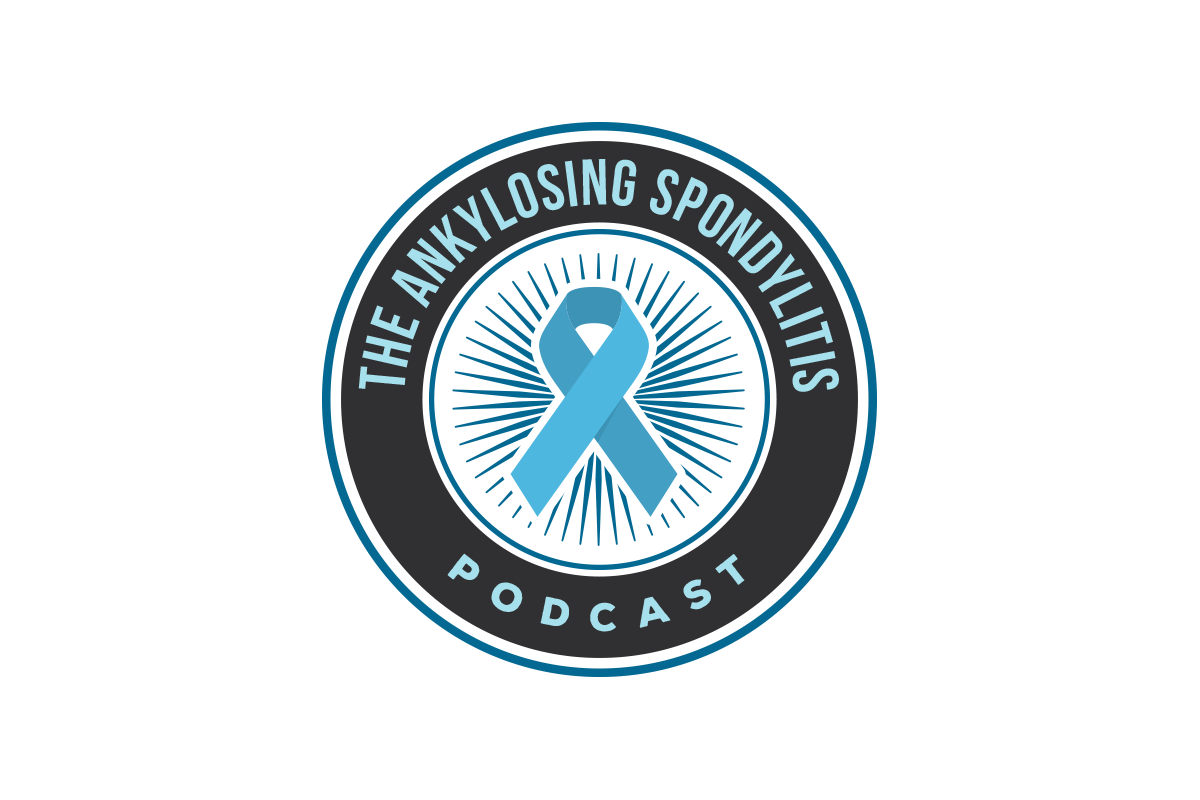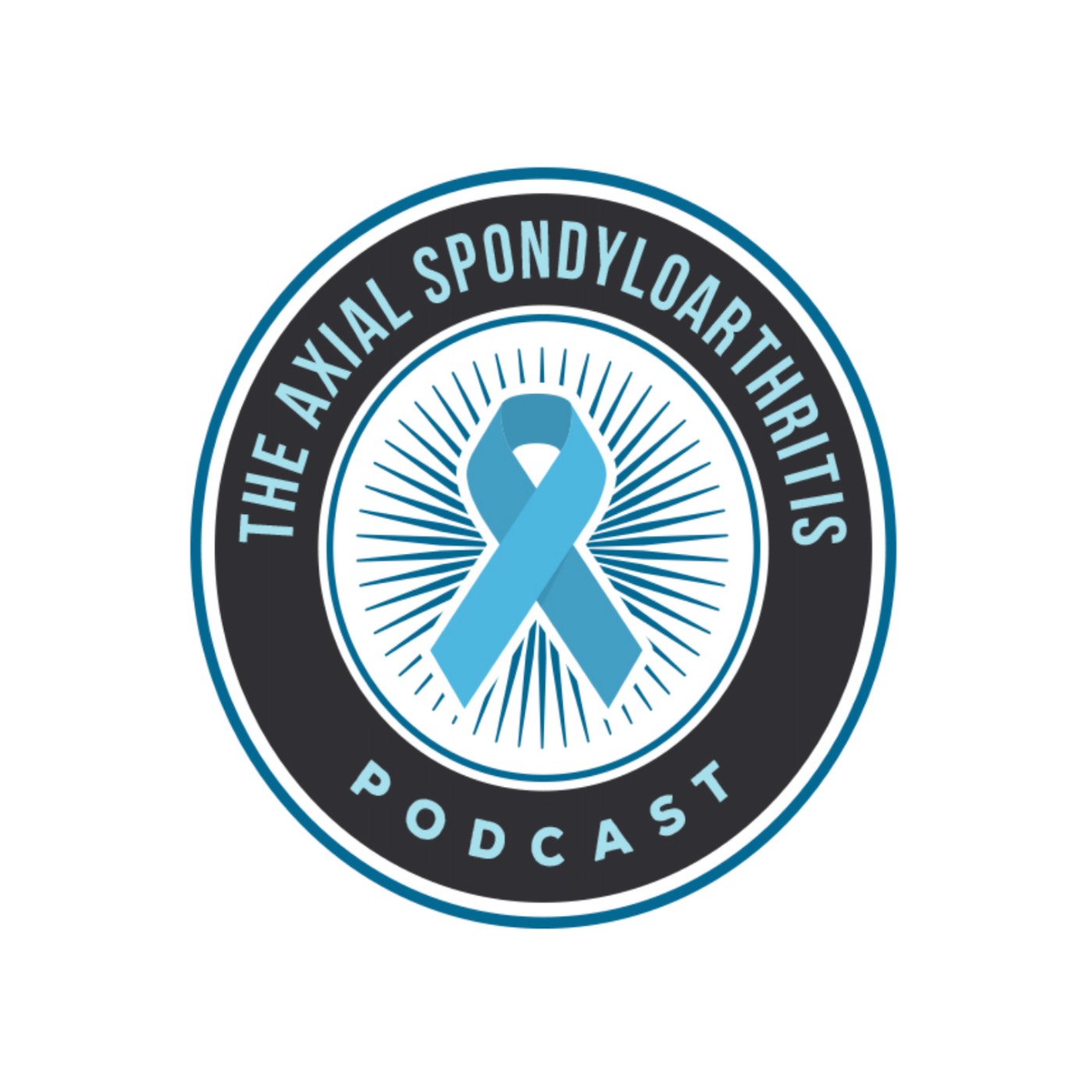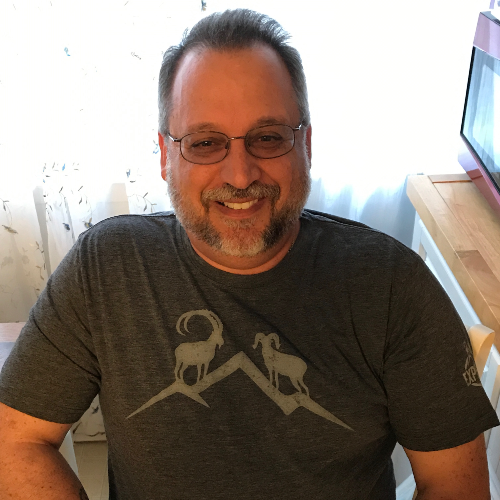Episode 29
Pet Peeves Heard About Ankylosing Spondylitis
Hello, and welcome to this episode of The Ankylosing Spondylitis Podcast. It's going to sound like a broken record, but I just can't thank all of you listeners enough. It's been incredible the numbers that I keep seeing on the show, we've now been downloaded in 58 different countries. To me, that's amazing. When I went about making the show, it was going to be only in English. And I didn't really know what kind of reach the show would have. But 58 countries is amazing, we've literally circled the globe. It's great to see everybody that is enjoying the show, and finding some type of comfort from it, entertainment value, whatever, and then turn around and contacting me and saying how you like the show. So it’s been fantastic and it's been really interesting. The downloads coming out of Switzerland have been huge. So whoever's in Switzerland enjoying the show, I hope you just keep enjoying. I'll just keep making the shows for everybody around the world. But it's neat to see these downloads come from different countries.
With that, I want to go to the Question of the Week. This question was brought about kind of by video I just watched where a young lady recently diagnosed with Ankylosing Spondylitis was very upset just with the overall you know, everything of dealing with being diagnosed with Ankylosing Spondylitis. That video kind of broke my heart. As many know I was diagnosed a long time ago and my remembrance of being diagnosed is non-existent. I just have Ankylosing Spondylitis just is what it is. It's been part of my life for 35+ years. So when I see somebody that's recently diagnosed or read about it, it kind of breaks my heart as they go through all the stages of understanding and dealing with what a diagnosis means.
With that said, I wanted to point out a website that many of you may be familiar with. If you're not, this might be of help. There's a website called ankylosingspondylitis.net. What I like about that website is all the resources available. There's a community section about it a basics, Types of Spondyloarthritis, Signs and Symptoms, Being Diagnosed, Treatment, Living with AS, Mental Health, and then some special sections. And there's just a ton of articles out there that are about Ankylosing Spondylitis. I think there are a lot of good things that we can all take away from it. As far as being diagnosed if you're new to this treatment options, again, if you're looking for different ways to help yourself feel better, and I'll have a link in the show notes to ankylosingspondylitis.net. I think it's a great website. I encourage you to go check it out. Look around, you can make a profile and then if you want to tell your story, you can. You can share your story with others, so that it just becomes a more robust community and you get feedback to help you give feedback to help others. It's really I think, just a neat website and a neat resource for all of us to utilize
This week's episode was started by a posting online that I was participating in. We were all kind of having some fun with it. You know, there are all sorts of things that people will tell you to do, generally well meaning and they'll come up to you and say, Well, I know your back is hurting. So try this or you know, go swimming or whatever they tell you. Everybody started a thread based on the pet peeves that they heard, and I pulled out about 23 of them and they kind of make you chuckle. So really, take this episode with some levity, enjoy it and just know that most of the time these people are not meaning anything negative. And just sometimes you’ve got to kind of roll your eyes and say, “Yea, thanks. I never thought of that before.” and move on. Be as snarky as you want or be as nice as you want. Whichever works best for you. These 23 different pet peeves are kind of boiled down of what I saw posted online. So here they go.
Number one, Hope you feel better soon, Don't we all? You know, they don't quite understand that this disease we never really feel better. We just have better days than worst days. You know, again most people don't say that to be mean. It just is what it is.
Number two, which falls under unsolicited medical advice, Try a coffee enema, it will remove the impurities in your body that are causing AS. That one wasn't said to me, but if somebody said that to me, I might be like, “what are you nuts?” I'm not really even sure where to go with that one. So, you know, do with it as you choose.
Number three, You should go lay down or sit down and rest. Well, yes, thank you. I'm probably going to do that at some point or multiple points throughout the day. I might not want to do that. I might want to try and keep up with everybody else. But my body won't allow it. And so thank you kind of Captain Obvious.
Number four, one uppers. I have arthritis in his finger and it hurts when I do this, whatever this is you and they don't understand that the wave as strikes, it can be through the whole body. It can be certain spots of the body, whatever. But it's not just as simple as a maybe having a little soreness and a hand or a finger when a storm is coming. It's a whole different ballgame.
Number five, You should work out more or stretch. Really, again, thank you. I know I should work out. I'm not sure if you're telling me I'm fat, or you're just telling me that I should feel that way to try and be helpful. But there's days when I always my mind always wants to say you need to go work out you need to stretch you need to do this. But physically, there are just some days I can't do it. And I'm sure many of you experienced that as well all the time.
Number six, You're too young to have arthritis. I got this all the time, especially being diagnosed at age 14. I was always told you just being lazy. You. You don't want to go out and do stuff because you're just lazy. You're too young to have this. You're too young to do this. Well, thank you for being the doctor and telling me what I can and can't do. But yes, I do have a autoimmune disease, it's never going to get better Matter of fact, it will get worse. But, you know, that's just one of them.
Number seven, It will get better. Well, you don't really know that. I don't know that when I you know, if I went back to myself in my 20s when I was having my major flares and my fusing through my 20s and my 30s if somebody would have told me it was going to get better, I would have been like you're nuts. But back then also, there was no biologics to help control it. Now in my late 40s, almost 50 as the as has kind of fused everything, the pain is changed and it has gotten better I don't get the flares like I used to I don't near get the harsh pain like I used to. It's a different kind of pain now. But I'm also on biologic that helps and some other pain meds that that really do the trick. So for all of us, it's really just a game of trying to find that medicine cocktail that helps us out the best.
Number eight, Have you tried cutting out gluten? Again? Maybe well meaning gluten can certainly affect a lot of things. And it can affect those of us with as. So it's well meaning but it's just one of those items that gets thrown at you just willy-nilly by everybody.
Number nine, when someone starts a sentence to you, with, At least at least you…, you know, you can still do this or at least you can still do that. Yeah, at least I can still get up in the morning at least I can still move on. Yes, those are all true. There's always somebody that's possibly worse off than me. I don't want to minimize anybody else's situation, or make them feel bad because they're having a bad day or a flare. So I can always look at that one and just say yeah, and move on.
Number 10. But you don't look like there's anything wrong. Well, I'm Not sure how you're supposed to look. In my case, I'm hunched over I walk with a cane. I'm 49 and I, I walk like I'm about 99 I look like there's something wrong. But there's many people that have as that have been able to keep it under better control, have gotten access to medications as they've been developed, and can still participate in a lot of different activities. So, yeah, there is no one look to how any of us should look. We're all different and affects us all differently. So we just we are who we are.
Number 11. Are you taking your meds properly? Yes, again, thank you. I am taking my meds properly. Just the taking of my meds is not going to change how I feel on any given day. There's all sorts of other outside factors that can be anything from the weather to stress to you know, doing A lot of running around and doing errands and things like that. So it's not just take my medicines feel great. It's take my medicines, and then hope all this other stuff doesn't help me not feel as great. Again, it's just something that you hear.
Number 12, Just get some more fresh air and exercise. That was always my grandmother would say that to me when I was a young kid, you’d feel better if you just go and get some fresh air. I never held that against it because it's my grandmother. You can't hold anything against your grandmother. She's, well meaning. Nobody knew anything about Ankylosing Spondylitis in the early 80s and mid 80s. And it was just something that, you know, you took a pill and it was cured, so to speak.
Number 13 It's all in your mind. No, it's not all in my mind. It's in my shoulders. It's in my spine. It's in my hips. It's in my feet. It's in my neck. It's anywhere but In my mind, it's not one of those things where you can you know, overcome this you're not going to go to a Tony Robbins seminar walked out cured from Ankylosing Spondylitis (no knock against Tony Robbins. You know, if you like that, that's great. Just the only example I could think of right off the top my head). So anyway, it's in more than just your mind.
Number 14, Essential oils will cure you. I'm not overly familiar with essential oils what they are, but I saw a number of people comment this particular item. And I see people bring it up on the forums. I'm not going to knock them because I don't know what they are. But, again, there is no cure for Ankylosing Spondylitis at this time. So there are no ways there are ways to control it. There are ways to put it into remission from diet exercise, medications, but there is nothing that will cure it.
Number 15. You just need to lose a few pounds. Again, thanks for telling me I'm overweight. I really appreciate that. It's not like I can't tell it when I look at myself in the mirror in the morning. But I always try to look at and say, Man, I hope they're just saying that because they're trying to be helpful and not be rude. So it's one of those things where you just say, All right, thanks, and move on.
Number 16. We all hurt. Yes, we do. I will never minimize your pain to make mine seem more extreme. We do all hurt. But we all heard differently. You’ve cut off a finger; you're going to hurt a pain way that I have no concept of because I've never cut off a finger. I have Ankylosing Spondylitis. Unless you have as you're not going to understand how I feel. So everything is relative. We all hurt. We all have our issues that we deal with. But again, I'm not going to minimize somebody else's situation. And don't minimize mine.
Number 17, Don't stay up so late. You know, again, I haven't heard that since I was a kid, but somebody apparently heard that they were being told don't stay up so late, and you'll feel better get more sleep as where I think it was going.
Number 18, If you don't think about your back pain, you won't feel it anymore. That kind of goes back to, it's all in your mind is much as I wish that I could just will this away. It's not going anywhere. You know, the more positive affirmations I do, it's not going to get any better. I might feel better mentally, but physically, it's not going to adjust how my spine feels on my neck feels how my shoulders feel how my hips feel, you know, you get it, you're not going to be able to positive affirmation way your way out of as,
Number 19, It's just stress, you need to relax. Well, stress might trigger a flare and make my as worse, but it's far more than just stress and that kind of goes back to all The other things, just calming myself down. Well, it might help to ease the symptoms of a flare, maybe even take me out of a flare, or take any of us out of a flare. It's not going to fix it. It's not a function of stress as causing Ankylosing Spondylitis.
Number 20, You've changed? Yeah, I have, depending on when you were diagnosed, there was things pre diagnosed that you might have done that you don't do now, you might not be able to meet with friends as often or as at the drop of the hat as you used to the idea of going skydiving might have appealed at one time and not appealed anymore. And whatever else you used to like to do, maybe just not even think about it just run out and do it might not be something that you're able to do so quickly now. So yeah, we have changed as changes you.
Number 21, I didn't understand what the person wrote but they just said I can cure you, somebody walks up and says I can cure you, I got this magic been for you, you know, you spend as much as little of your time with them as you want and decide whether they're wasting your time probably are but you know, that's again, that's my opinion. You give them as much time as you want.
Number 22, Hope you get better soon. I hope I do too. Not going to happen. I might have a remission. I might not have, you know, as much pain. But again, Ankylosing Spondylitis as we all know, doesn't go anywhere. It always is there it's always lurking. And well medications can keep it a bay. We're not going to get better anytime soon.
Number 23 ties back to the other It's mind over matter. No, it's not. So with that said, even though those were kind of fun and you can be snarky with responding to some of them and some of them are well meaning but have no real sense. What it really leads us to is we can all be the advocate for Ankylosing Spondylitis. Develop what I call an elevator speech a little 30 to 60 second item about what Ankylosing Spondylitis is. So when that person walks away, they have a maybe better understanding of what AS is. You be the tool that explains what Ankylosing Spondylitis is, as best you can, if you're willing to and help to spread awareness of Ankylosing Spondylitis. So, with that, I hope you all have a great day. I thank you for allowing me to come and talk with you. And we'll talk to you soon. And I can't wait we I think have some really cool stuff coming up for 2020, take care.


